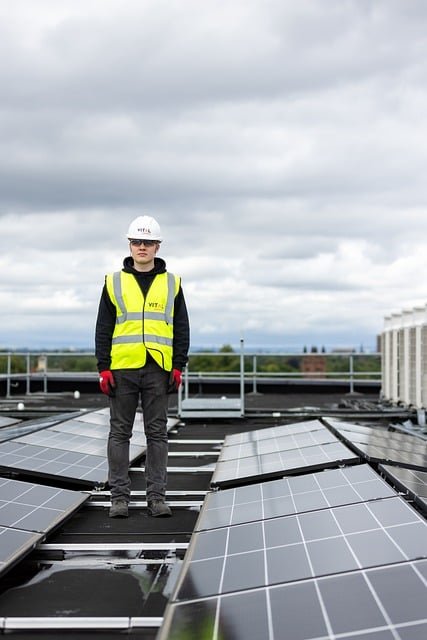Exploring Careers in Solar Panel Installation
Explore the expanding field of solar panel jobs, including the various roles involved in solar installation. Learn about the essential skills required for these positions and how solar companies are driving the shift to renewable energy. Discover career opportunities in this growing industry.

What Career Paths Exist in Solar Panel Installation?
The solar installation industry encompasses multiple career trajectories, each requiring distinct skill sets and qualifications. Entry-level positions typically include solar panel installers and technicians who handle the physical mounting and electrical connections of photovoltaic systems. These roles involve working at heights, using specialized tools, and following safety protocols while installing panels on residential and commercial properties.
Progression opportunities lead to senior installer positions, where professionals supervise installation teams and handle complex system configurations. Project managers coordinate entire installations from planning to completion, managing timelines, resources, and client communications. Sales representatives focus on customer acquisition and system design consultations, while quality assurance specialists ensure installations meet industry standards and regulatory requirements.
Understanding Roles and Responsibilities in Solar Energy Jobs
Solar panel installers bear primary responsibility for the safe and efficient mounting of photovoltaic systems. Their daily tasks include site assessment, equipment preparation, panel positioning, electrical wiring, and system testing. These professionals must understand electrical codes, roofing structures, and safety regulations while working in various weather conditions and on different building types.
System designers create detailed installation plans using specialized software to optimize energy production and ensure code compliance. They analyze site conditions, calculate energy requirements, and develop layouts that maximize efficiency while considering aesthetic and structural factors. Maintenance technicians perform ongoing system inspections, troubleshoot performance issues, and conduct repairs to ensure optimal energy generation throughout the system’s lifespan.
Diverse Opportunities Beyond Technical Installation Roles
The solar installation industry extends far beyond hands-on technical positions, encompassing various support and management functions. Business development managers identify new market opportunities and establish partnerships with contractors, suppliers, and regulatory bodies. Training coordinators develop educational programs for new installers and ensure ongoing professional development within organizations.
Marketing specialists promote solar solutions to residential and commercial clients, creating awareness campaigns and educational materials about renewable energy benefits. Administrative roles include permit coordinators who navigate regulatory requirements, procurement specialists who manage equipment sourcing, and customer service representatives who handle client inquiries and system monitoring support.
Skills Required for Success in Solar Installation Careers
Technical proficiency forms the foundation of most solar installation roles, requiring understanding of electrical systems, construction principles, and safety protocols. Installers must develop competency with specialized tools, measurement equipment, and mounting hardware while maintaining awareness of evolving technology and installation techniques.
Soft skills prove equally important, including problem-solving abilities, attention to detail, and effective communication with team members and clients. Physical fitness remains essential for installation roles due to the demanding nature of rooftop work and equipment handling. Continuous learning attitudes help professionals adapt to technological advances and changing industry standards.
Industry Impact on Sustainable Energy Development
Solar panel installation professionals contribute directly to reducing carbon emissions and advancing renewable energy adoption. Their work enables residential and commercial properties to generate clean electricity, decreasing dependence on fossil fuel-based power generation. This contribution extends beyond individual installations, supporting broader grid stability and energy independence goals.
The cumulative effect of widespread solar adoption helps drive down renewable energy costs while creating local employment opportunities that cannot be outsourced. Installation professionals become ambassadors for sustainable technology, educating clients about energy efficiency and environmental benefits while demonstrating the practical viability of renewable energy solutions.
Career Growth Potential and Professional Development
The solar installation industry offers substantial advancement opportunities as the renewable energy sector continues expanding. Entry-level installers can progress to supervisory roles, specialized technical positions, or transition into related fields such as energy storage or electric vehicle charging infrastructure.
Professional certifications enhance career prospects, with organizations offering specialized training in photovoltaic systems, electrical codes, and safety protocols. Many professionals eventually establish their own installation companies, leveraging industry experience and client relationships to build successful businesses within the growing renewable energy marketplace.
Continuous technological advancement ensures ongoing learning opportunities, from new panel technologies to smart grid integration and energy management systems. This evolution provides career stability while offering intellectual challenges that keep the work engaging and professionally rewarding for dedicated individuals committed to sustainable energy solutions.




